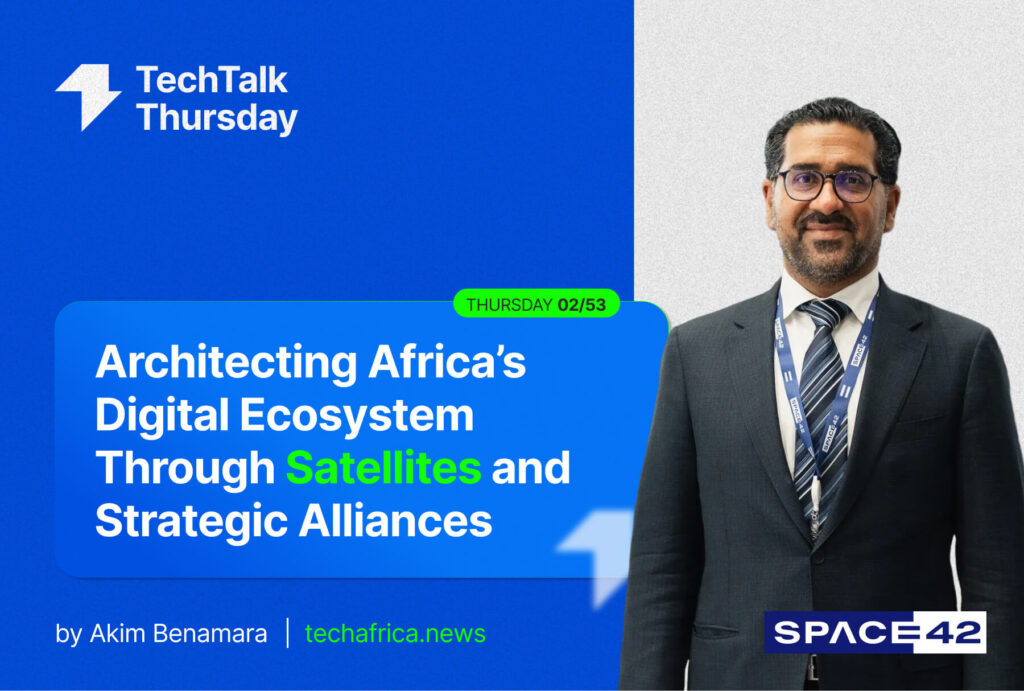Africa Digital Parliamentary Summit: Can Policy Keep Up with Innovation?
From 9 to 11 July 2025, the Pan-African Parliament , working together with the African Population and Health Research Center and the GSMA , hosted the inaugural Africa Digital Parliamentary Summit in Lusaka, Zambia. This gathering was organised to explore how Africa can shape its approach to artificial intelligence, data protection, digital health, and modern manufacturing, so that technology serves the continent’s development in a fair and sustainable way.
Members of Parliament from committees on transport, industry, communications, energy, science and technology, health, labour, and social affairs were joined by senior representatives of AUDA-NEPAD , Africa CDC, the African Peer Review Mechanism and ECOSOCC . Over the course of three days, participants explored the intersections of technology, governance and development, with particular attention to artificial intelligence, responsible data use, digital health systems and the potential of advanced manufacturing to strengthen Africa’s industrial capacity.

The TechAfrica News team was present at summit, providing on-the-ground coverage while engaging with key stakeholders from government, industry, and civil society to capture diverse perspectives and share an informed, independent account of the discussions and outcomes
The sessions were opened by the Honourable Felix Mutati, Minister of Technology and Science of the Republic of Zambia, who remarked on the timeliness of the discussions, given the continent’s urgent need to harness technological progress for broad-based socio-economic development.
The opening ceremony featured three keynote addresses. Honourable Behdja Lammali, Chairperson of the Pan-African Parliament Committee on Transport, Industry, Communications, Energy, Science and Technology, Dr Anthony Mveyange, Director of Programmes, Synergy at APHRC, and Mr Kenechi Okeleke, Senior Director at GSMA, each reaffirmed their institutions’ commitment to supporting the Summit’s objectives. All three speakers emphasised the importance of equipping Members of Parliament with the knowledge and insight needed to legislate responsibly in fields that are both complex and rapidly evolving.
Using Research to Guide Policy
The first presentations were led by Dr Anthony Mweyangwe of the African Population and Health Research Center. He explained how APHRC works to connect research evidence with policy and decision-making. The organisation, which is active in thirty-five African countries, focuses on collecting reliable data, building skills in partner countries, and keeping dialogue open between researchers and policymakers.
“At APHRC, we firmly believe that digital health is a transformative force, holding immense potential for Africa to ‘leapfrog’ traditional development pathways. This Summit powerfully demonstrates how, by leveraging AI alongside advancements in digital health and smart manufacturing, we can accelerate socio-economic progress and foster deeper continental integration, directly aligning with the ambitious goals of the African Union’s Agenda.”
– Dr Anthony Mveyange, Director of Programmes, Synergy, APHRC
Artificial Intelligence: Balancing Progress and Responsibility
The Summit’s discussions on artificial intelligence were led by Members of Parliament who stressed the need to understand both how machine learning works in theory and how it can be used in practice. Speakers gave examples of how AI could help improve transport systems, manage cities more efficiently and support better healthcare delivery.
At the same time, many contributors warned that these technologies should be used carefully, with clear respect for ethics, fairness and people’s rights. There were particular concerns about bias in algorithms and the risk that, without proper rules, access to personal or community data could create unfair power imbalances.

Speaking on the topic in an interview with our Chief Editor during the event, Honourable Behdja Lammali, Chairperson of the Pan-African Parliament Committee on Transport, Industry, Communications, Energy, Science and Technology, remarked:
“In my perspective, AI offers an important avenue for addressing challenges in healthcare, industry, and transportation. It could improve efficiency, accessibility, and quality—especially for Africans living in rural and remote areas. If we are united and follow a strong strategy, AI will accelerate Africa’s development.”
– Honourable Behdja Lammali, Chairperson of the Pan-African Parliament Committee on Transport, Industry, Communications, Energy, Science and Technology
John Kamara, in a separate video interview, reinforced this perspective but cautioned against premature or uninformed regulation. He stressed the need to first understand the nature of AI and its implications:
“Healthcare is a very sensitive industry, as you mentioned. Manufacturing also has a lot of intellectual property. But the innovation that AI brings, I believe, outweighs the current risks—though those risks still exist. Regulating something we do not fully understand becomes a challenge. It can also stifle the innovation and speed of adoption that are critical at this stage.”
– John Kamara, Founder and Global Chief Executive Officer Adanian Labs Founder – AI Centre of Excellence
It’s fair to conclude that Africa’s lawmakers have a special duty to make sure any rules for using AI reflect the continent’s own needs and values, instead of simply copying policies from other regions without considering local realities.
Peer Review and Working Together Across Borders
The discussion then turned to how African countries can learn from one another and keep each other accountable. The Africa Peer Review Mechanism remains a good example of this, showing how states can share lessons and improve policies through honest exchange.
AUDA-NEPAD presented the Programme for Infrastructure Development in Africa (PIDA) as proof that regional projects can succeed when they are well designed, funded and supported by political leaders. Many speakers suggested that similar joint efforts should be expanded to digital regulation, which would help make trade easier, protect data across borders and allow skilled workers to move more freely within Africa.

Digital Health: Strengthening Systems and Protecting Data
The Africa Centres for Disease Control and Prevention gave an update on its digital health strategy. It highlighted the progress made and also the challenges that remain, such as gaps in data sharing and weak systems for health information in some regions.
The COVID-19 pandemic showed clearly that good data saves lives. Participants agreed that African countries should work together to share health data securely and fairly, with safeguards to protect personal information. The idea of “Data Science Without Borders” was shared as a goal that could strengthen the continent’s health security, if handled properly.
The Digital Health Industry Report that followed painted a clear picture of where the digital divide still blocks equal access to care. Improving connectivity, digital literacy and trust in digital systems were all raised as urgent areas for future investment.
Modern Manufacturing: A Path to Stronger Industry
The final major topic was smart manufacturing, presented by GSMA. The report showed that new technologies such as automation, robotics and blockchain can help African industries raise product quality, reduce waste and compete more strongly in global markets.
One clear example was Morocco, which now exports more cars to Europe than China or Japan—a sign that African industries can lead if the right conditions are in place. According to the analysis, modern manufacturing could add up to ten billion dollars to Africa’s GDP by 2030. But for this to happen, governments need to pass laws that attract investors, protect new ideas and help workers gain the skills required for advanced production methods.
Kelechi Okeleke exemplified Morocco’s progress during a video interview with us at the summit, highlighting it as a case of strategic policy intervention in smart manufacturing.
“Morocco is a strong example. While examining the topic of smart manufacturing, we observed that about ten years ago, the Moroccan government removed taxes on specific special economic zones focused on automobile production. At the time, Morocco was producing around 53,000 cars annually. By 2023, that number had risen to over 550,000. This illustrates how a forward-looking policy intervention by government can significantly drive growth in the manufacturing sector. It is the kind of strategic approach that other governments across the region can consider to stimulate both digital health and smart manufacturing in their own countries.”
– Kenechi Okeleke, Senior Director, Regional, Social and Policy Research, GSMA
The Lusaka Declaration: A Commitment to Act
At the close of three days of presentations and discussion, the Summit adopted the Lusaka Declaration, a document setting out shared priorities and practical steps to help Africa’s digital transformation advance in a fair, responsible and evidence-based way.
The Declaration highlights the important role that Members of Parliament play in shaping laws to protect rights, support innovation and make sure digital tools truly serve everyone. The Summit itself offered a valuable opportunity for lawmakers to deepen their understanding of complex new technologies and build confidence to address them through legislation.

By agreeing to the Lusaka Declaration, those present affirmed a shared responsibility to ensure Africa’s digital future rests on sound evidence, thoughtful policy and a clear commitment to leave no one behind. Beyond formal speeches, the gathering gave leaders a space to listen, learn and renew their determination to work together. With stronger partnerships and careful guidance, Africa is better placed to move forward and shape its digital future on its own terms.






